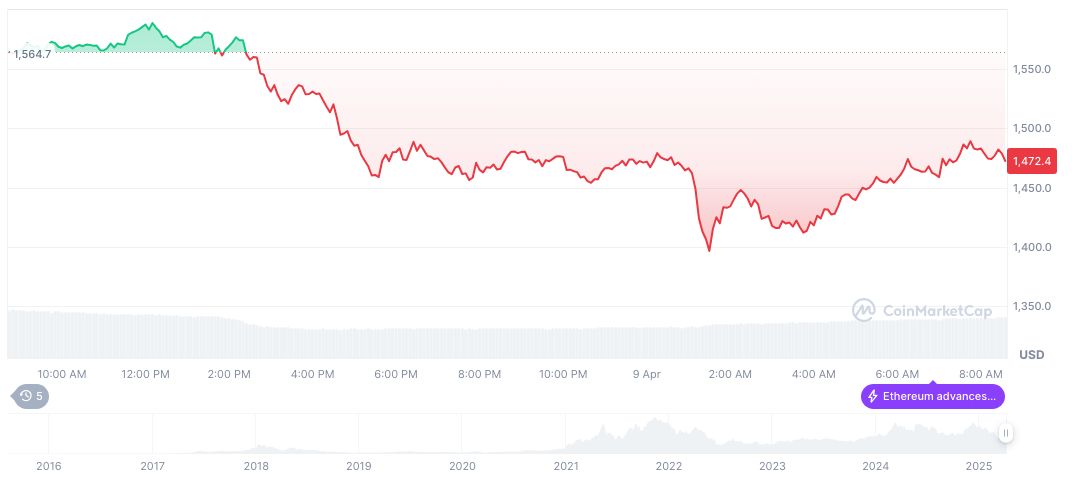- US announces tariffs reducing global stock market value by $10 trillion.
- Tech giants lose $1.65 trillion in market value.
- Cryptocurrency markets show increased volatility amid economic shifts.
The US government’s imposition of reciprocal tariffs on April 2, 2025, significantly affected global capital markets, causing a $10 trillion decline. This is more than half of the EU’s GDP.
These tariffs have sparked volatility in both stock and cryptocurrency markets, resulting in a $1.65 trillion loss for major US tech companies.
Key Points
The US government’s “reciprocal tariffs” have led to a $10 trillion decline in the global stock market from April 3, 2025. This marks a substantial loss compared to the EU’s GDP. US tech companies, including Apple and Microsoft, have experienced significant market value reductions. Apple’s market valuation alone fell by about $638 billion due to its dependence on overseas manufacturing supply chains impacted by these tariffs.
The immediate implications are heightened costs for overseas supply chains, affecting company valuations and stock prices. Apple’s stock price dropped by nearly 23%, reflecting the tariff-induced pressure on its international production networks.
Key market reactions include increased risk aversion and heightened volatility in cryptocurrency markets. Major figures, such as Richard Teng, CEO of Binance, noted the non-sovereign store of value cryptocurrencies may offer during economic uncertainty. The US Tech sector lost considerable valuation, with leaders emphasizing potential policy adjustments.
Historical Context, Price Data, and Expert Insights
Did you know? The Smoot-Hawley Tariff Act of 1930 had similar trade repercussions, leading to widespread economic downturns. Comparing past tariffs can offer cautionary insights amid current economic challenges.
According to CoinMarketCap, Ethereum (ETH) experiences high volatility. Current price at $1,473.74 reflects a 21.14% decline over the past week. Its market cap stands at approximately $177.85 billion, with a 24-hour trading volume down by 16.35%. Recent fluctuations highlight investor cautiousness amid economic shifts.

Coincu’s research team indicates that prolonged tariff policies may drive tech and financial sectors towards more domestic and decentralized solutions. These could impact regulatory approaches and spark innovation in digital assets as businesses adapt to evolving trade landscapes. Binance noted the non-sovereign store of value cryptocurrencies may offer during economic uncertainty.























